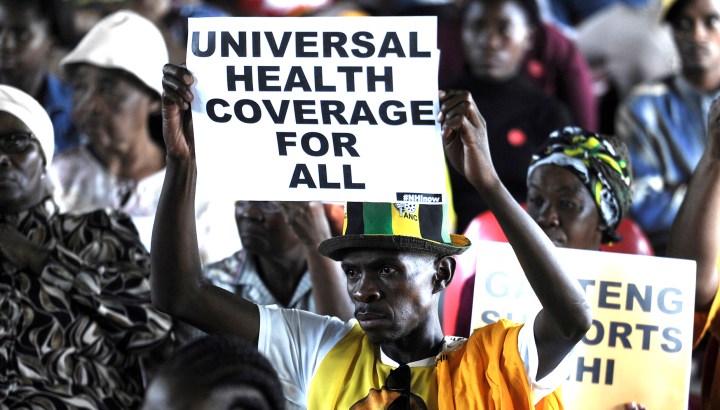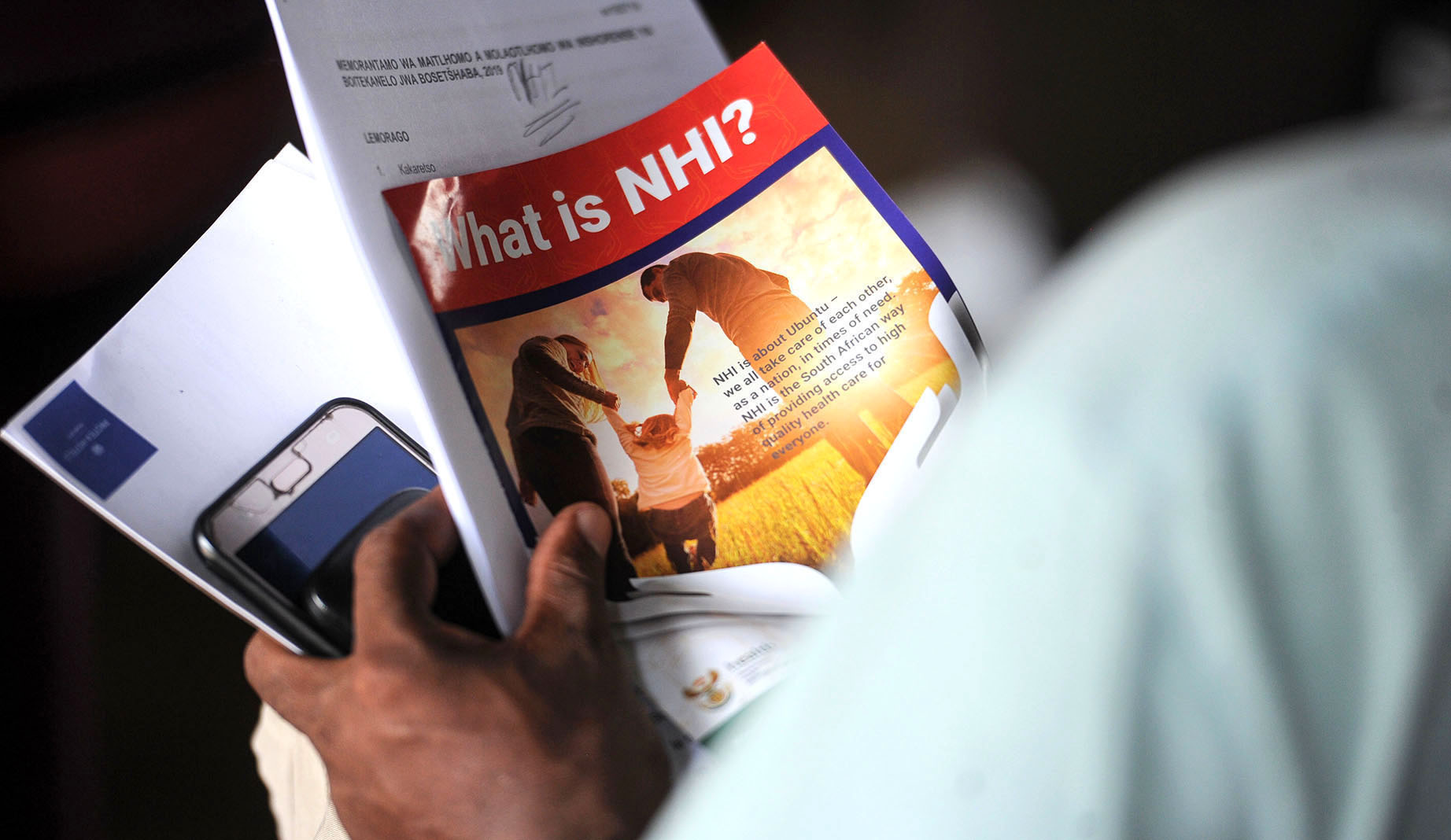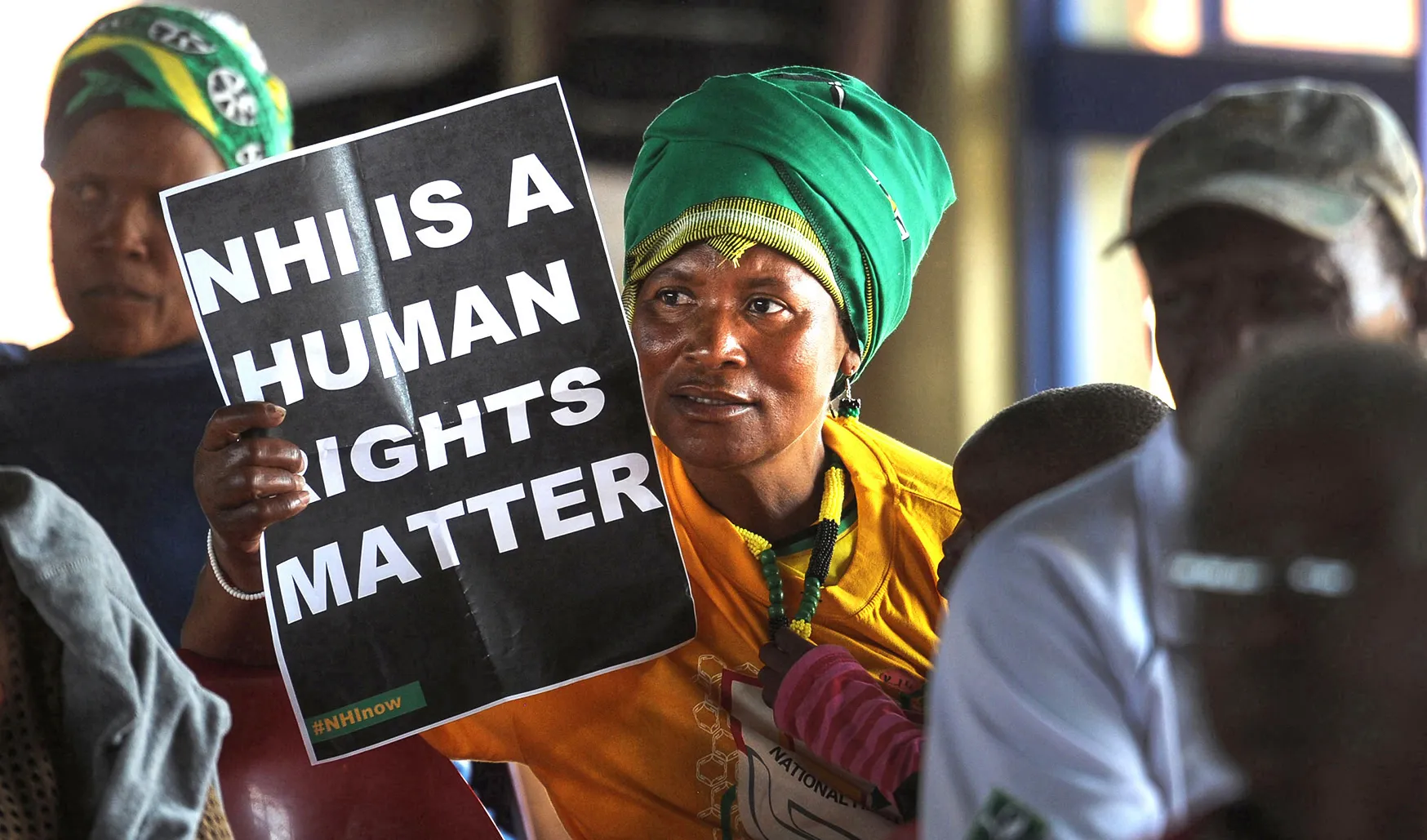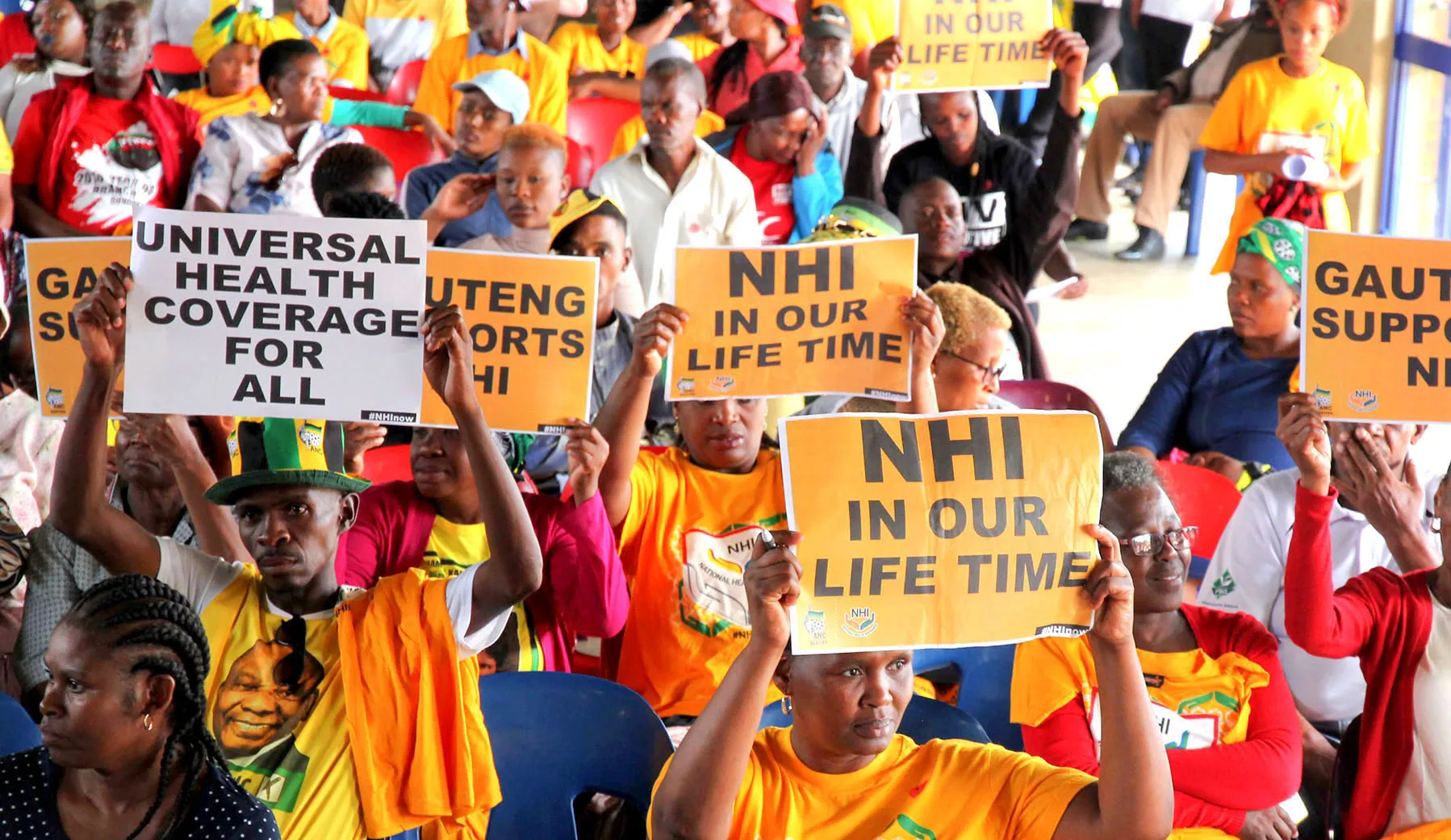SPOTLIGHT OP-ED
There are paths to quality universal healthcare besides NHI

One of the most damaging aspects of our public discourse on National Health Insurance is the mistaken notion in some quarters that the only two options are NHI and the status quo.
Often implicitly, sometimes explicitly, defenders of National Health Insurance (NHI) suggest that any argument against NHI is one for maintaining the current system. Since the current system doesn’t work very well for most people, this line of argument gets some purchase, even though it is based on a false premise.
In his book Which country has the world’s best health care?, oncologist and bioethicist Ezekiel Emanuel outlines the key features of healthcare systems in 11 different countries. Two things that stand out are that health systems differ substantially between countries and that most systems are the relatively messy products of complex histories and political and other compromises. This latter point about the path dependency of healthcare systems is an important one we will return to.
Many varieties
South Africa’s proposed NHI system is sometimes clumped together with systems in other countries such as Canada, the UK and Thailand. At times this is fair, at times it skims over important differences.

Public hearings on the NHI Bill in Khayelitsha. (Photo: Nasief Manie / Spotlight)

South Africa’s National Health Insurance project comes amid a great trust deficit in the government. (Photo: Nasief Manie / Spotlight)
For example, NHI will be a single-payer system, which is to say the NHI fund will be responsible for almost all purchasing of healthcare services in the country. In some respects, Canada has a similar system, except that rather than one system for the whole country, in effect they have 13 single-payer systems for each of their provinces and territories. Even Thailand, sometimes referred to as an example of NHI, technically has three funds rather than one, although it resembles South Africa’s NHI plans in several other respects.
In principle, a large single-payer should be able to negotiate better deals than several smaller payers, but on the other hand, having Canada-style provincial funds would be more closely aligned with South Africa’s current governance arrangements and in some provinces, such as the Western Cape, chances are that people would have more trust in a fund run by the province than in one run nationally.
Hardly anyone seems to have shifted their positions in the past decade and there has been very little serious consideration of alternative paths to universal healthcare.
Another thing that quickly becomes apparent when looking at the variety of healthcare systems out there, is that a simplistic dichotomy between NHI and private healthcare is a false one. Countries like the Netherlands and Germany have achieved excellent health outcomes with systems that are neither NHI-style systems nor examples of the private sector running riot. Though the details are significantly more complicated than this, you can think of the Netherlands and Germany roughly as having many strictly regulated medical schemes (called sickness funds in Germany) with scheme/fund membership being compulsory (with some exceptions). The German system is progressive in that people with higher incomes contribute more than people with lower incomes – an important difference from South Africa’s medical schemes. Funds in the Netherlands are also not primarily funded directly, as with our medical schemes, but receive funding from a central fund via a risk adjustment process. Both the German and Dutch systems have significant social solidarity built-in in the way they institutionalise the cross-subsidising of the poor by the wealthy.

The NHI will be a single-payer system, meaning the NHI fund will be responsible for almost all purchasing of healthcare services in the country. (Photo: Rosetta Msimango / Spotlight)
In South Africa, such a system could, for example, be implemented by dramatically tightening up the regulation of medical schemes, putting in place a progressive mechanism for cross-subsidisation between schemes, making scheme membership compulsory for those who can afford it, and, over time, using tax revenue to pay for scheme membership for the unemployed (although this last element, like NHI, does come with a big question mark on affordability. Those with long enough memories might remember that a system roughly along such lines was on the cards in South Africa around the turn of the century. (see for example the Taylor report of 2002 and this interesting paper.)

In terms of design choices underlying the National Health Insurance, things like public hearings often felt like an attempt at co-opting rather than meaningful engagement. (Photo: Refilwe Mekoa / Spotlight)
Getting to there from here
One striking thing about NHI in South Africa is that for all the column inches, submissions to Parliament and oral hearings across the country and in Parliament, hardly anyone seems to have shifted their positions in the past decade and there has been very little serious consideration of alternative paths to universal healthcare.
One reason for this is the sense that the design choices behind the NHI Bill were essentially decided on by a relatively small group of people in the Health Department and the ANC about 10 or 15 or so years ago. What followed often felt like an attempt at co-opting rather than meaningful engagement. This was particularly apparent in the way some members of the Portfolio Committee on Health continuously pushed people on whether they are for or against NHI, rather than engaging with the substance of people’s submissions. Though the boxes for public engagement were ticked, the reality was often a parody of what such engagement is meant to be.
It is not inevitable that NHI will result in the destruction of much healthcare capacity in South Africa, but the risk is certainly real.
We could have gone a different route. It would have been entirely feasible to have a process for NHI akin to the much more meaningful set of engagements we had for the Competition Commission’s Health Market Inquiry into the private healthcare sector. In that case, people could make submissions, be heard by the panel, and crucially, one never got the sense that the outcome was preordained. Such a process may in some respects have given government officials and members of Parliament a few more headaches, but it would also have built trust and understanding of the technical issues, and for major reforms like NHI trust and public understanding is half the battle.
Read more in Daily Maverick: We are unlikely to be equitably able to access lifesaving, affordable medicines under NHI
Which brings us back to the idea of path dependency. Emanuel’s book offers no easy answer to the question of which country has the best healthcare. They all have strengths and weaknesses and one’s choice will to some extent be guided by what you value. But what the book also does expertly is to problematise the very idea that a healthcare system is something you can pick from a menu, with no regard for how you get from here to there.

Residents in Kagiso on the West Rand gave input on the NHI Bill during the public hearings. (Photo: Rosetta Msimango / Spotlight)

Currently, the NHI comes with a huge question mark over affordability. (Photo: Rosetta Msimango / Spotlight)
Whatever your position is on NHI, what is indisputable is that NHI represents a major disruption from the path we have been on until now. Getting from our current two-tiered system with several medical schemes to a Dutch- or German-style system would also have been a major reform, but less so than with NHI. The severity of the change in direction to NHI partly explains why NHI is so contentious. Such dramatic changes in direction are risky at the best of times, much more so in the context of our country’s deeply dysfunctional politics and rampant corruption. Given the long timelines, it is not inevitable that NHI will result in the destruction of much healthcare capacity in South Africa, but given this context, the risk is certainly real.
On the other hand, major reforms of this nature are always going to be difficult, as they famously were when the National Health Service was introduced in the UK. There will always be some pressure groups who you won’t be able to accommodate and who you simply have to stand up to. Personally, I am convinced that several of the key architects of NHI had good intentions, and their arguments have merit. But unfortunately, the fact that they have won out is mostly a result of them having convinced a few key players in the ANC and not of them having convinced healthcare workers and the public more generally.
Read more in Daily Maverick: After the Bell: Is South Africa being NHI-ed?
Either way, largely for party-political reasons, it seems inevitable that South Africa will over time transition to a system very different from what we have now. Reasonable people may very well differ over whether the precise path set out in the current version of the NHI Bill is the right one – ultimately only time will tell. What there should be no doubt about right now, however, is that the path the ANC has chosen for us is just one of many possible paths. DM
Low is editor of Spotlight.
This article was published by Spotlight – health journalism in the public interest.





















 Become an Insider
Become an Insider
This is the best opinion piece I have read on the NHI by far.
It addresses the core issue, that of the one track mind of government that universal health care can Only be achieved by a single pooled fund. That is hardly achievable in Canada or in the UK, but in Canada it is at least run per province. So the WC should be okayish in that system and the rest of us north of the Kei river not so much.
The key is many countries get to universal health care in different ways and it is a complete obfuscation on the part of government that the only path to universal care lies via a single government fund. Which creates anxiety in everyone because of the dismal administration of the health funds already available.
A mix of compulsory medical aid, state funding, re aligning med aids are all far more manageable ways to get to universal health care than this blind mindset of a single pooled government NHI fund. The latter engenders zero trust that everyone’s health care will get better. We can find better solutions that can expand universal, better healthcare to everyone in SA if we leave this blind ideology and look to what works in countries with similar economies to ours and similar constitutional democracies. There is no point to try and copy a NHI system that requires either the wealth of the UK or the lack of democracy like Cuba.
Please give us more articles featuring countries closer to ours, and how their health systems work. And maybe someone in DOH reads it and THINKS.